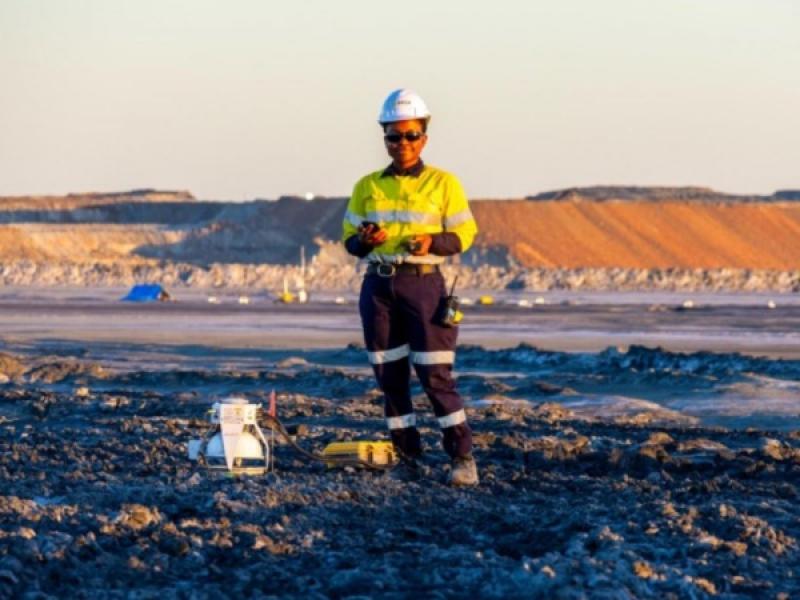
A pair of surveys have found Canadian businesses, along with the venture capital and private equity spaces, are commonly setting environmental goals but struggling to convert the aspirations into actions.
The Montreal-based Business Development Bank of Canada (BDC) found backsliding in climate policies and a lag compared to social and governance matters among the general partners (GPs) surveyed in its 2024 DEI and ESG Portfolio Metrics report. Only 10 per cent of GPs said they had a 2030 carbon neutrality goal (as of 2023), compared to 18 per cent a year earlier.
An international survey of 1,355 technology and sustainability business leaders commissioned by Microsoft and New York-based IT services provider Kyndryl discovered 90 per cent of the 122 Canadian respondents consider sustainability important, but only six per cent successfully integrate it in their corporate strategies. That falls short of the global average.
Though many organizations say sustainability is important, “when you look down into the details, how are you actually executing on this, where are you on the journey, there’s quite a gap,” Avintha Moodaly, Kyndyrl's director of environmental management, said in an interview with Sustainable Biz Canada.
The BDC data shows the difficulty of acting on climate issues as a leaner organization, and the comparative challenge of shrinking a firm’s carbon footprint relative to improving workplace diversity, Paula Cruickshank, senior vice-president of fund investments at BDC Capital, said.
How Canadian business leaders are trailing on the environment
A wide gulf between the E (environment) of ESG versus the S (social) and G (governance) was identified by BDC, a Crown corporation that fosters Canadian business growth.
Of the 61 GPs that responded, two-thirds said they do not have meaningful policies or are not taking action related to the environment, compared to just 11 per cent for social and seven per cent for governance.
Declines in climate policy take-up occurred from 2022 to 2023. Use of carbon offsetting tools went from 14 per cent to 10 per cent; having a third-party or expert that tracks carbon emissions fell from 18 per cent to 14 per cent; implementing corporate policies to reduce air travel slipped from 30 per cent to 27 per cent.
At the portfolio level, only four per cent of the 495 companies made a carbon neutrality pledge, a one-point slide from the previous year.
On a somewhat more positive note, assisting companies in implementing climate-reduction goals rose from 11 per cent to 13 per cent. Measuring and reporting greenhouse gas emissions associated with portfolio companies stood the same from 2022 at 21 per cent.
However, Cruickshank noted the small sample size for the BDC survey: only 49 general partners replied to the 2030 carbon neutrality question. As a result, it may not be statistically significant.
Of the Canadians surveyed by the Kyndryl and Microsoft-commissioned report, most indicated climate-focused sustainability is at the top of mind for their organizations. Globally, 38 per cent of companies said they accelerated the pace of meeting sustainability goals. In Canada, 60 per cent said there was a ramp-up on sustainability, Moodaly said.
Why Canadian companies are challenged on the climate

There is uncertainty that trickles down from lack of models to use as a sustainability baseline, the Kyndryl survey discovered. Over three-fourths of Canadian organizations blamed the absence of clear governance or prioritization frameworks as a major obstacle.
Almost 90 per cent want the government to set clearer mandates and reporting standards.
Moodaly also noted Canadian companies trail on adoption of technology for sustainable outcomes: 31 per cent said technology was used to directly achieve their sustainability goals, though 79 per cent said it holds a high importance in meeting those targets.
A lack of collaboration between an organization’s internal departments on the execution was a significant problem reported by Kyndryl.
“If you think about where does the sustainability strategy and ambition get set in the organization,” Moodaly said, “we’ve seen that CEOs and the sustainability teams have been taking the lead on that. And that’s not really percolating to the other teams.”
Though the BDC is pleased social and governance is being integrated in the Canadian venture capital sector, Cruickshank said it could be that “the climate piece is harder.” One possibility she suggested is that environmental issues are more challenging to act on than the other two elements of ESG.
Another explanation is the size of companies.
“We do see that it is easier for larger companies to be able to deliver on climate promises and policies. And you have to remember these GPs and the companies they’re dealing with are very small organizations typically,” Cruickshank said.
How to walk the talk on sustainability
As a large motivation for the BDC survey was to raise awareness among GPs to develop climate policies and take initiative, Cruickshank provided suggestions to drive change.
The language around climate change could be simplified, she said. Tools that measure greenhouse gas emissions and educational resources are being made more readily available by the BDC. Companies can take early steps such as balancing virtual and in-person meetings to reduce travel emissions.
Technology is critical to meeting an organization’s sustainability targets, Kyndryl said, aiding in data collection, sustainability reporting and strategy development. Without the data, Moodaly said improving energy efficiency and implementing fuel switching are difficult to achieve.
Artificial intelligence (AI) is a key part of the technology Kyndryl prescribes. It can help identify high energy use and predict future demand, find openings to reduce carbon, and uncover high-carbon suppliers.
Though AI has been found to be a major contributor to increasing energy consumption and carbon emissions, Moodaly said the technology has been getting more energy efficient, and the benefits could outweigh the drawbacks.










